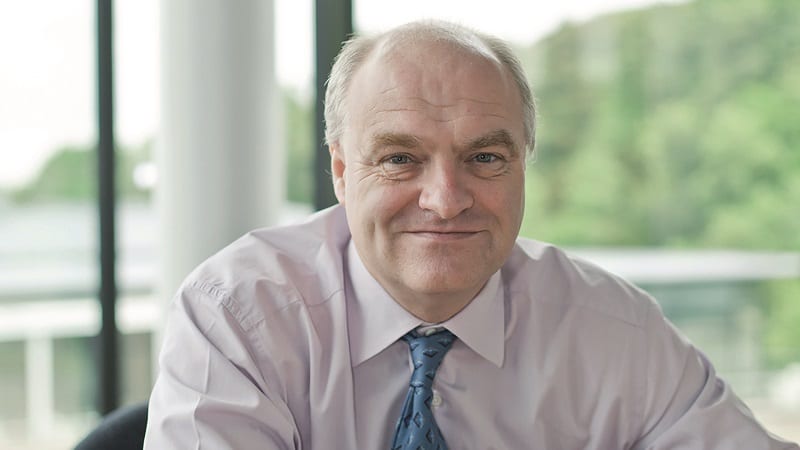More straightforward equity investment trusts have been looking to boost their exposure to unlisted assets, following the major successes of late-stage investment pioneers like Scottish Mortgage and Chrysalis Investments, but the level of expertise and due diligence required to invest in unlisted assets could limit the number of successful adopters.
Winterflood head of research Simon Elliott notes the advantages of the listed closed-ended fund structure in accessing illiquid asset classes has been put to good use for many years in private equity, commercial property and infrastructure.
But now he says more publicly listed companies have been looking to broaden their remits to include private companies.
In the last week alone Baillie Gifford UK Growth has appealed to shareholders to allow it to expand its remit to include up to 10% in unlisted assets, while Fidelity China Special Situations is seeking to lift its existing limit from 10%-15%.
Exciting tech businesses less reliant on equity markets for funding
Trusts that have gone down this route, many of them from the Baillie Gifford stable, point to the fact that many companies, particularly those with strong growth prospects, are staying private for longer.
Killik & Co head of research Mick Gilligan notes staying private is less costly and investors can arguably capture more of the upside that is often diluted post IPO. “A big reason is that management have more control and do not have to answer to hundreds of new shareholders and the very public quarterly reporting scrutiny that listed companies undergo,” he explains.
Many of the newer businesses that have sprung up in the last decade in emerging areas like biotech, software and digital payments are also far less capital intensive than businesses in years gone by, says BMO Managed Portfolio Trust manager Peter Hewitt.
There are exceptions like Swedish ‘buy now, pay later’ firm Klarna and money transfer specialist Wise, Hewitt says, but generally “the requirement for funds from the equity market hasn’t been nearly to the same degree”.
Wouldn’t want conventional trust to suddenly invest 50% in unquoteds
For fund managers who want to gain exposure to “exciting, new companies with rapid growth characteristics”, having the flexibility to invest a portion of your portfolio in unlisted assets makes sense, Hewitt says.
“Because if you don’t, and you just wait for them to come public, either they do come public at some gigantic valuation, or they actually don’t come public for some time.”
However, he says: “You wouldn’t want a conventional investment trust that you’ve got a holding in to suddenly announce they’re putting 50% of their assets in private companies. That would be a bit much.
“But normally it’s up to about 10%, maybe 15%. And I think that’s quite sensible, particularly if it’s in companies that are likely to get listed in the next two or three years, not 10 years down the line.”
Miton Global Opportunities manager Nick Greenwood expects to see more trusts leveraging their “ideal” capital structures to tap into this increasingly important segment of the economy which open-ended funds are missing out on.
“Go back a few years we had a lot of trusts that had more or less the same portfolio with their open-ended and closed-ended versions,” he says. “So, it’s important that they move on and actually use the structure which is perfect.”
See also: DFMs tap investment trusts for income and alternatives during pandemic
Difficult to pin down number of trusts with unlisted assets
The Association of Investment Companies told Portfolio Adviser 35 of its members across the equity sectors and in the Growth Capital category had divulged the level of their unlisted holdings at the end of May.
However, the actual number of trusts with unquoted exposures in these sectors could be higher. Monthly reports to the AIC are provided on a voluntary basis and not all trusts that can invest in private companies specify this in their investment objectives.
Excluding the Private Equity and VCT sectors, 33 AIC members mentioned “unquoted,” “private” or “unlisted” in their investment objectives. While some like Scottish Mortgage and Invesco Asia clarify the proportion of unlisted assets that they can hold relative to NAV, many do not.
Of the trusts that submitted a monthly report, Lindsell Train Investment Trust (LTIT) had the highest proportion of unlisted assets to NAV at 48.1%, though this was entirely down manager Nick Train and Michael Lindsell’s stake in their own boutique Lindsell Train Limited.
Behind LTIT, UIL and Hansa Investment Company, which sit in the Flexible Investment sector, had the next highest exposure, followed by two Baillie Gifford trusts – James Anderson’s (pictured) Scottish Mortgage and Baillie Gifford US Growth, run by Gary Robinson and Kirsty Gibson.
AIC members in equity and Capital Growth sectors with biggest exposure to unlisted assets
| Sector | Unlisted holdings (% of NAV) | |
| Lindsell Train | Global | 48.1 |
| UIL | Flexible Investment | 24.9 |
| Hansa Investment Company | Flexible Investment | 22.4 |
| Scottish Mortgage | Global | 22.1 |
| Baillie Gifford US Growth | Global | 16.2 |
Source: AIC/Morningstar data as at 31 May 2021
Baillie Gifford pioneered late-stage investment craze
Hewitt says Baillie Gifford has been a “pioneer” in terms of introducing private company exposure to straightforward equity funds and Anderson’s Scottish Mortgage has been the leader of the pack.
Last June the trust, which now has £18.1bn in total assets, successfully raised its unquoted exposure from 25% to 30%.
Though Scottish Mortgage is by far the biggest and most visible of the Edinburgh manager’s trusts that can invest in unlisted assets, six others reported unquoted exposure at the end of May, more than any other UK asset manager.
Hewitt currently holds three Baillie Gifford trusts that invest in unquoteds – Monks Investment Trust, Scottish Mortgage and Edinburgh Worldwide – in the top 10 of his BMO Managed Portfolio.
Behind Baillie Gifford, Fidelity has four trusts with exposure to unquoteds, according to the AIC, with Fidelity China Special Situations having the biggest weighting (9.3%).
Schroders has three, including the Schroder British Opportunities and BSC Social Impact trusts, which launched last year, and Schroder UK Public Private which was once Neil Woodford’s Patient Capital trust.
This is not just kind of a good idea cooked up by some professors in a laboratory
Greenwood highlights Chrysalis Investments, which he owns in his Miton Global Opportunities trust, as another poster child for the benefits of investing in late-stage private companies.
While the trust, formerly known as Merian Chrysalis, had a lacklustre debut on the London Stock Exchange, only raising half of its £200m target, it is now a constituent of the FTSE 250, with Richard Watts and Nick Williamson’s concentrated portfolio home to several major success stories like The Hut Group.
Another major holding Wise, which Scottish Mortgage also owns, is eyeing a £9bn London listing next month.
The key behind Baillie Gifford and Chrysalis’ success is the fact they typically target late-stage companies like Wise, Hewitt says.
“We’re not talking about venture capital stuff here. This is not just a kind of a good idea in the laboratory that a couple of professors have come up with and it may or may not be a wildly successful biotech company. These are serious businesses.”
Both Scottish Mortgage and Chrysalis are comfortable holding private companies even after they IPO.
Investment in private companies will not become universal
But Elliott thinks the level of expertise required to invest in private companies and issues around valuation methodology will preclude more trusts from following in the footsteps of Scottish Mortgage.
Though Anderson’s trust has had a number of huge wins, it has experienced plenty of misses too. Its 0.1% holding in Intarcia Therapeutics was written down to nil, according to its last annual results, and holdings like Eventbrite and Uptake Technologies have also taken hits to NAV.
“These issues or even hurdles mean that we would not expect that investment in private companies will become universal,” Elliott says.
“Indeed, without a robust infrastructure around the investment decision, it could lead to holdings that are by definition difficult to dispose of and with uncertain valuations.”
There is also a concern around the level of transparency of unlisted holdings, though Elliot notes this is frequently complicated by non-disclosure agreements.
Stifel has previously stated Scottish Mortgage could provide greater disclosure around its unquoteds by including specific commentary around major changes in valuation as well as information around outstanding funding commitments to private holdings.







